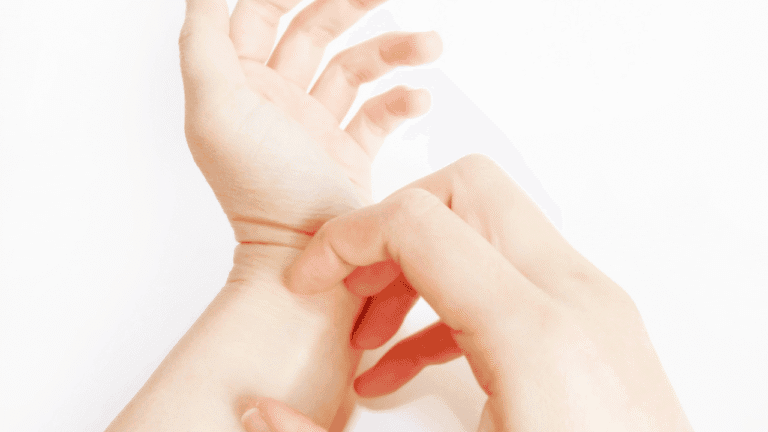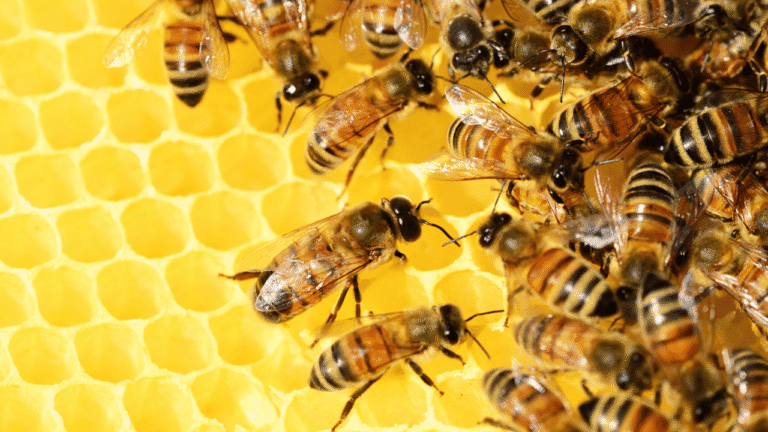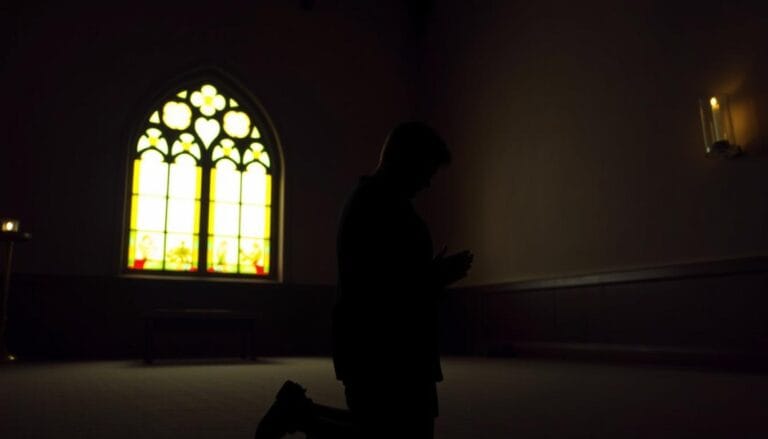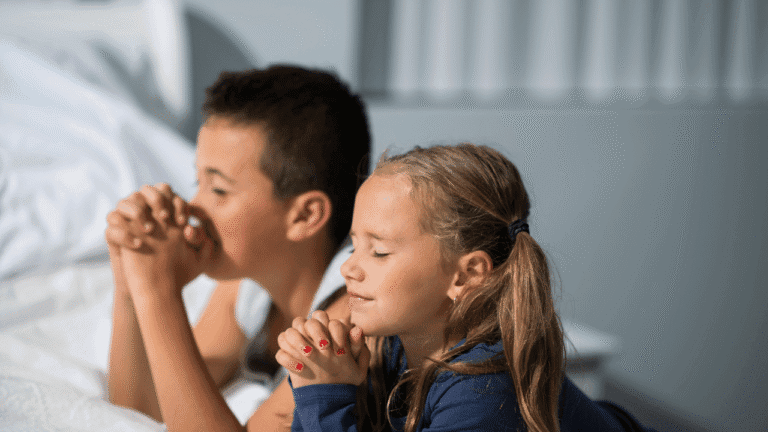what does laughing in your sleep mean spiritually Spiritual Significance Explained

What does laughing in your sleep mean spiritually? This short guide looks at a curious blend of science and spirit. We frame a gentle path that honors both intuition and facts.
Most people experience an occasional giggle at night. Such episodes often stem from REM dreams and are usually harmless.
We will explain REM basics, why laughter can surface in the second half of the night, and why early Freudian ideas no longer lead the field.
Alongside physiology, we offer thoughtful ways to explore spiritual meaning without alarm. Frequency, extra movements, and general wellbeing shape whether this is simple joy or a cue to look closer.
Expect clear guidance, cross-cultural views, and practical steps like journaling to help you find a calm connection between experience and insight.
Key Takeaways
- Night giggles often link to REM and dream content.
- Most episodes are harmless and common among adults.
- Context and frequency help decide if follow-up is needed.
- Both science and faith perspectives can inform meaning.
- Simple steps, like a sleep journal, aid reflection and clarity.
Understanding Sleep Laughter Today: What We Know and Why It Matters
Nighttime chuckles can feel mysterious, but modern studies help us separate dream-driven biology from symbolic meaning.
Search intent often blends spiritual curiosity with a need for plain facts. Readers want to honor meaning while learning the likely cause of episodes.
Large groups of people report occasional laughing sleep episodes. One study found 33–44% of middle school children laughed at least once in six months. Another sample showed 73% of undergraduates noticed at least one hypnogely event per year.
Laughter at night most often reflects amusement inside a REM dream. These events tend to appear later in the night, when REM periods lengthen and dreams become richer. Episodes may briefly wake the sleeper and seem mysterious on waking.
- Track date, approximate time, and any recalled dream detail.
- Note frequency and any unusual accompanying behavior.
- Seek professional advice if events are persistent or disruptive.
Curiosity, not fear, is the best guide: isolated episodes rarely require action, yet simple notes help you notice patterns and decide if further care is needed.
Sleep Science 101: REM sleep, dreams, and why laughter happens at night
The rapid eye movement stage is where vivid dreaming unfolds and the brain runs intense emotional processing. During this phase, muscle atonia creates a protective paralysis that keeps most dream activity internal.
Rapid eye movement, muscle atonia, and dream-driven chuckles
The brain’s social and emotional circuits can fire during REM, so a laugh may be just a natural reaction to imagined scenes. Dream content can feel odd on waking, which makes the sound seem out of place even though it matched emotion inside the dream.
When hypnogely is harmless vs linked to a sleep disorder
Occasional vocalized laughter without large movements is usually benign. If laughter happens with complex movements or repeated enactment, document episodes and consider evaluation—REM sleep behavior disorder (RBD) removes normal atonia and can be serious.
Adults, babies, and different sleep cycles across the night
REM periods lengthen toward morning, raising the chance of episodes later in the night. Babies spend a greater share of time in REM during development, which helps explain frequent infant giggles.
- Track time, frequency, and any visible behavior.
- Note whether vocalizations come with vigorous movement.
- Seek clinical advice for recurring or risky behavior.
Science clarifies common physiological causes while leaving room for personal reflection. For more context and gentle guidance, see this short guide on sleep laughter: sleep laughter and meaning.
what does laughing in your sleep mean spiritually
Across spiritual traditions, a quiet night chuckle can be seen as a soft pulse of joy reaching the soul. Many interpret these moments as part of a larger tapestry of inner signals rather than medical signs.
Positive energy, joy, and signals from your higher self
Positive energy often gets framed as warmth moving through emotions. Nighttime laughter can feel like brief release—an expression of joy that slips through during dreaming.
Some readers treat this as a gentle nudge from a higher self. The sound can mark alignment with what lights you up and signal readiness to embrace inspiration.
Seeing destiny: blessings, good fortune, and life path hints
In many traditions, such moments hint at blessings or upcoming good fortune. They act as a small sign that your path holds growth or a favorable turn.
- Notice recurring themes around relationships, creativity, or purpose.
- On waking, place a hand over the heart and ask for any concise message.
- Combine intuition with grounded habits such as journaling to track patterns.
Spiritual interpretation is personal. Use cultural roots and values to decide what resonates. Even if no clear message appears, seeking meaning in joy can deepen your sense of connection and purpose.
Angels, ancestors, and cross‑cultural beliefs about sleep laughter
Across many cultures, small nighttime smiles get framed as signs that unseen helpers are near.
From Irish fairies to Native American spirit guides
Celtic stories often tell of fairies whose whispers and gentle tricks bring good fortune and luck when laughter rises at night. Such tales weave wonder into ordinary rest.
Native American teachings add spirit animals as playful guides. These figures may delight dreamers and offer lessons by way of dreamtime joy.
Eastern European, African, and Latin traditions of protection and blessing
Many Eastern European and Latin communities imagine angels close by, offering comfort and subtle blessings through nighttime smiles.
African practices often read such moments as the care of ancestors—an intimate reminder that family lines watch over life.
Buddhist and Hindu views: karma, past lives, and auspicious signs
In Buddhist and Hindu frameworks, dream joy can hint at karmic release or echoes from past lives, seen as auspicious ripples of merit.
“Small signs at night can be both tender and grounding.”
- Shared threads: protection, connection, and comfort across cultures.
- Explore personal heritage for stories that make you feel held.
- Try a brief ritual—prayer, candle, or gratitude list—to honor any felt presence.
Note: These cultural narratives add gentle meaning and solace but do not replace clinical advice. For further reading on cultural and personal context, see this short guide: sleep spiritual.
Babies laughing in sleep: spiritual meaning vs developmental milestones
Many parents wake to a soft chuckle and wonder whether it signals growth or something to watch. A baby’s night sounds are most often a sign of normal development and budding social cues.
Why infants smile and giggle during rest
Infants spend far more time in rem sleep than adults, so dreams and brief vocal play are common. These moments reflect neural wiring for emotion and early joy pathways.
Spiritual frames parents cherish
Many families see such night smiles as gentle visits from angels or ancestors. Across cultures, these images give comfort and deepen felt meaning.
When to seek pediatric guidance
Most sleep laughter is brief and harmless. Seek care if episodes are very frequent, last over a minute, include odd movements, or show daytime change in the child. A short video shared with a pediatrician can ease concern.
- Track time, duration, and any repeat pattern.
- Honor cultural rituals at bedtime for calm and connection.
- Trust your instincts and ask for help when in doubt.
Adults laughing in sleep: dream content, daily life, and soul messages
For many adults, a nighttime laugh simply signals a joyful dream moment rather than alarm. Most episodes come from REM cycles where playful or absurd scenes trigger a brief vocal reaction.
Daily life often primes those themes. A stressful day, a funny memory, or a shared joke can echo back and color dream content by night.
Try this: ask before bed what occupied your mind. Note any small patterns of mood or routine that match the time you wake chuckling.
- Wind-down ritual: journaling, gentle stretches, or soft music to invite lighter dreams.
- Track timing: if laughter repeats at the same hour, log routine and stress levels nearby.
- Partner notes: if vigorous movement appears, record brief notes or video for clinical review.
Spiritually, this small sign can feel like a nudge to reclaim joy or reconnect with people who lift you. Isolated episodes of benign behavior need no action beyond curiosity and self-care.
When laughter could signal a disorder: RBD, gelastic seizures, and neurological conditions
Not all nighttime vocalizations are harmless—some point to neurological conditions that need attention. This short section explains key signs, tests, and when to seek help.
REM sleep behavior disorder: acting out dreams and risks
RBD is a disorder where normal REM muscle paralysis is absent. People may strike, thrash, or vocalize while dreaming.
Prevalence is rare (
A sleep specialist often orders a polysomnogram to watch REM without atonia and track eye movement and motor events.
Gelastic seizures and hypothalamic hamartoma
Gelastic seizures are brief, uncontrolled bursts of laughter not tied to humor. These episodes can repeat many times per day and often stem from a small hypothalamic lesion in the brain.
They may include chest sensations or automatisms such as lip smacking. Onset can occur very early in life.
Red flags that call for medical evaluation
“Seek evaluation when episodes are frequent, prolonged, injurious, or change daytime function.”
- Warning signs: complex movements, repeated episodes, or any injury.
- Checklist: note frequency, dream enactment, daytime changes, and any cognitive shift.
- Safety and care: make the bedroom safer and follow medical advice on medications and strategies.
Most nighttime laughter is benign, but patterns plus warning signs can cause concern. Seeking help is a sensible, hopeful step when something feels off over time.
Environmental factors and daily habits that shape nighttime experiences
Daily routines and simple habits can tilt cycles and alter dream tone. Small shifts in food, drink, and timing count as important environmental factors.
Caffeine, alcohol, and late meals change sleep architecture and can raise emotional charge in REM. Withdrawal or certain prescriptions may also trigger odd behaviors. If new events begin after a med change, review options with a clinician.
- Keep steady bed and wake times, even on weekends, to stabilize cycles across night and day.
- Turn off screens an hour before rest and make the room cool, dark, and quiet.
- Favor gentle daytime activity to regulate mood and deepen rest.
- Try a soothing pre-bed ritual—reading, mindfulness, or prayer—and a brief gratitude pause to invite calm connection.
- If dream enactment is possible, remove hazards near the bed and ask a sleep specialist about barriers and safety steps.
“Small, consistent changes often transform nightly rest and the texture of life.”
Celebrate progress. Stacking healthy choices usually improves overall sleep and reduces vivid vocal events, while offering a kinder path to greater peace and connection. For further context see this short guide: sleep spiritual.
Bridging science and spirituality: how to interpret your own sleep laughter
Interpreting a nocturnal chuckle works best when we pair careful tracking with small grounding practices that honor both data and feeling.
Journaling dreams and noticing patterns of meaning
Simple log: date, time, what you felt on waking, and any dream fragments. Do this for several weeks to reveal trends.
Tag entries with emotions—joy, relief, nostalgia—to see if laugh sleep clusters during certain seasons of life.
Grounding practices: mindful routines, prayer, and intention setting
Before bed, set a gentle intention: clarity, rest, or guidance. Try breathwork, light stretching, or a short prayer to invite calm and positive energy.
Create a personal symbol key so repeated laughter sleep becomes a consistent, nurturing sign you can recall later.
- Share patterns with a trusted friend, therapist, or spiritual mentor for extra perspective.
- If laughter sleep grows disruptive, seek medical input while keeping reflective habits.
- Celebrate these moments as evidence that dreams can carry joy and deeper connection.
“Paying kind attention to nights builds quiet wisdom over time.”
Conclusion
what does laughing in your sleep mean spiritually?
A kind, clear view brings the journey full circle: most night vocalizations tie to REM and dream content, while many traditions read them as hopeful signs of positive energy or blessings.
For babies and children, brief giggles often reflect healthy development and delight. For adults, these moments can invite attention to where lightness belongs in daily life.
If episodes grow frequent, prolonged, injurious, or include complex movement, consult a clinician to rule out serious conditions such as REM behavior disorder or seizures.
Keep a simple habit—journaling, brief intention, or a gratitude pause—to let the meaning that matters to you emerge over time. Hold both evidence and faith gently together, and carry forward care for self, child, and rest.
With gratitude for your curiosity: may nights bring peace, warmth, and occasional laughter.















